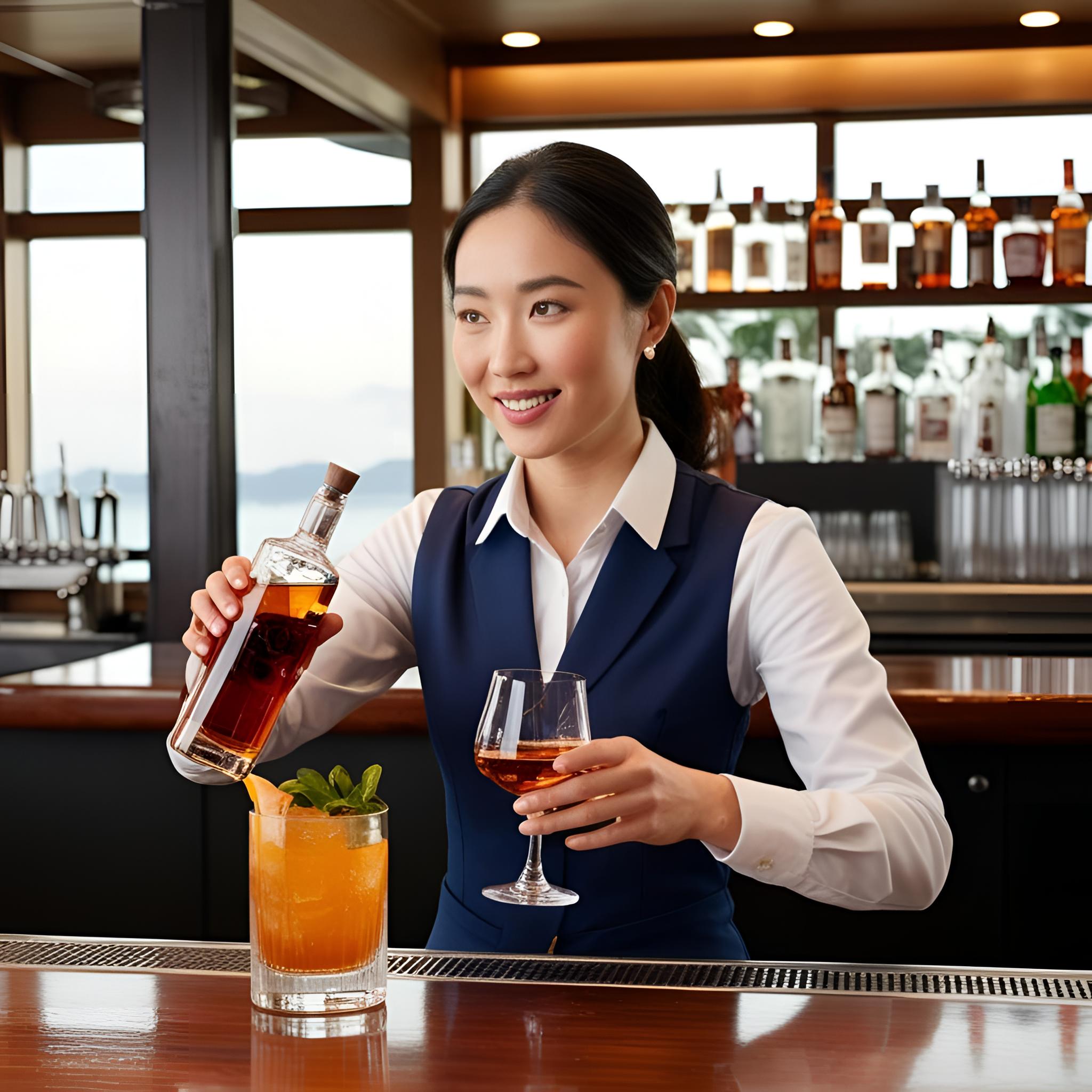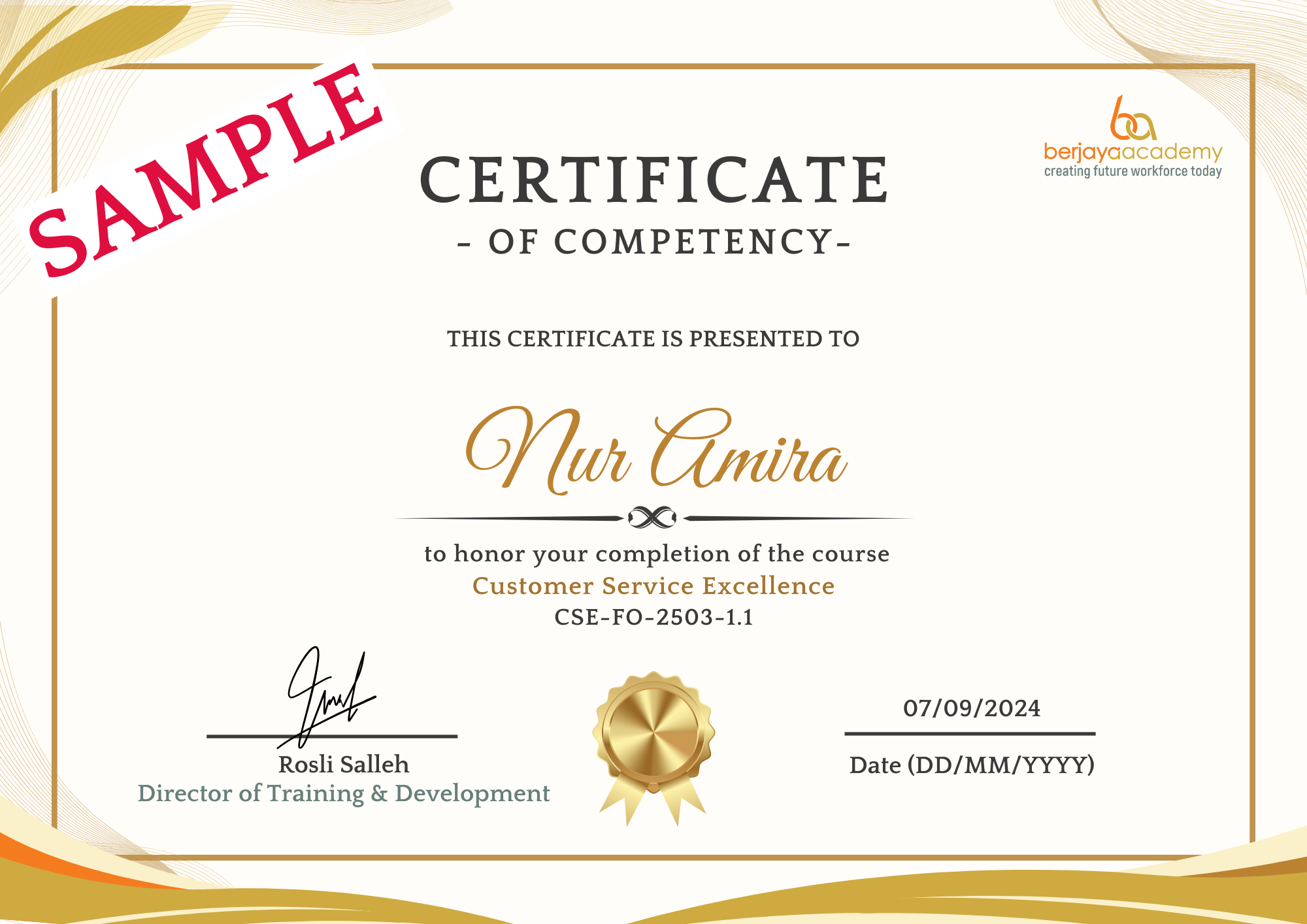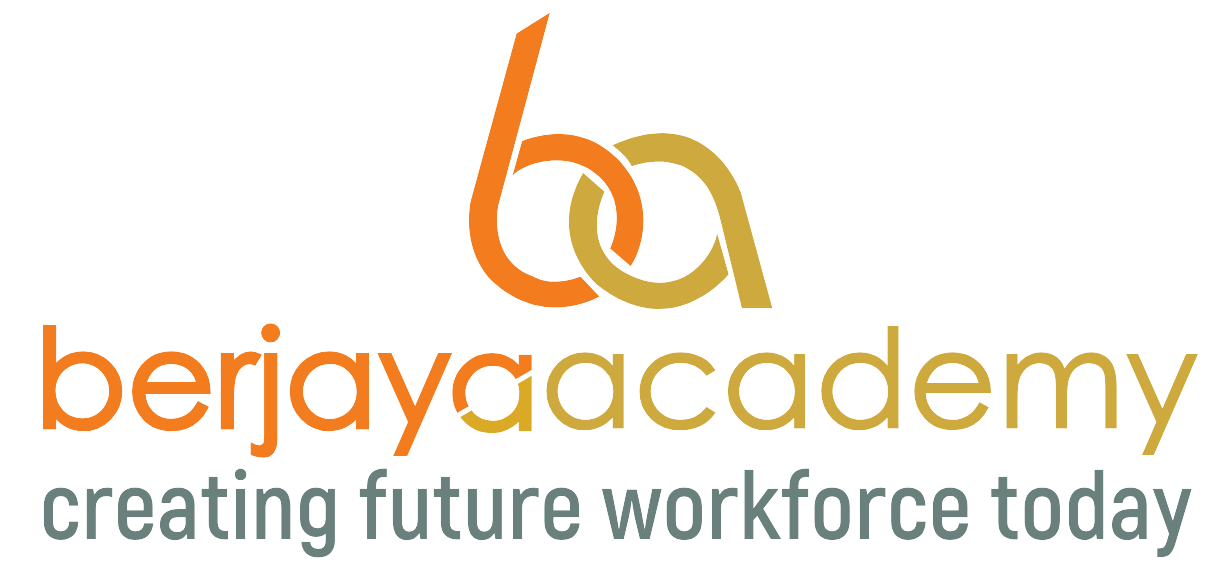
Course Details
Course Title: Alcohol Service Management
Course Code: ASM-FB-2503-1.1
Course Accreditation
Accreditation Type: Certificate of Competency
Course Duration
Total Course Hours: 8 hours (1 day)
Course Fee
Total Course Fee: S$180/pax
Funding Available (If Applicable):
- Training Industry Professionals in Tourism (TIP-iT)
- NTUC Company Training Committee (CTC) Grant
Summary
Topics:
- Responsible alcohol service and preventing overconsumption.
- Recognizing signs of intoxication and taking appropriate action.
- Security measures for handling incidents involving intoxicated guests.
Safety and Security Aspect:
- Ensures guest safety while minimizing risks associated with alcohol service.


Learning Objectives and Learning Units for Alcohol Service Management
Learning Objectives:
By the end of this course, learners will be able to:
- Provide responsible alcohol service to guests while minimizing the risks of overconsumption.
- Recognize signs of intoxication and take appropriate actions to prevent harm to guests and others.
- Implement security measures for handling incidents involving intoxicated guests to ensure safety and reduce risks.
Learning Units:
Unit 1: Responsible Alcohol Service and Preventing Overconsumption
- Understanding the effects of alcohol on the body and behavior
- Legal and ethical responsibilities of alcohol servers
- Methods for controlling alcohol service (e.g., limiting drink size, checking ID)
- Techniques to prevent overconsumption (e.g., pacing drinks, offering non-alcoholic options)
- Serving alcohol to guests with special considerations (e.g., age, medical conditions, pregnancy)
- Managing guest expectations and politely refusing service when necessary
Unit 2: Recognizing Signs of Intoxication and Taking Appropriate Action
- Identifying physical and behavioral signs of intoxication (e.g., slurred speech, unsteady movements, aggressive behavior)
- Understanding the stages of intoxication and their impact on guest behavior
- Techniques for defusing potentially volatile situations (e.g., using calm communication, offering water or food)
- How to intervene safely and effectively when signs of intoxication are evident
- Decision-making regarding the continuation or cessation of alcohol service
- Collaborating with team members to manage intoxicated guests safely
Unit 3: Security Measures for Handling Incidents Involving Intoxicated Guests
- Importance of maintaining guest and staff safety during alcohol-related incidents
- Establishing clear protocols for dealing with disruptive or aggressive intoxicated guests
- Role of security personnel in managing alcohol-related incidents
- De-escalation techniques for handling confrontational behavior
- When to involve law enforcement or emergency services
- Incident reporting and documentation procedures to comply with company policy and legal requirements
- Training for staff on recognizing alcohol-related risks and responding appropriately
